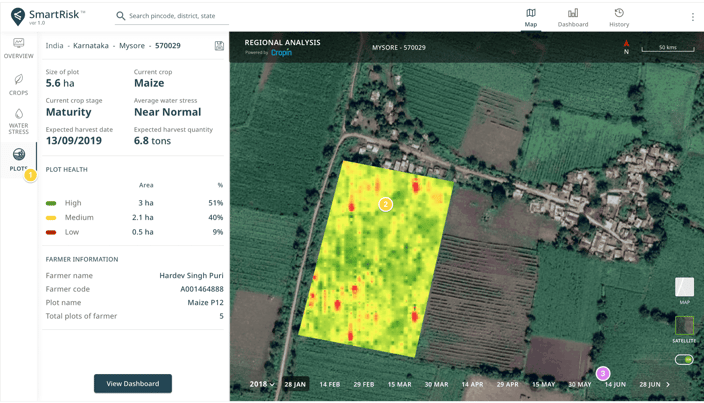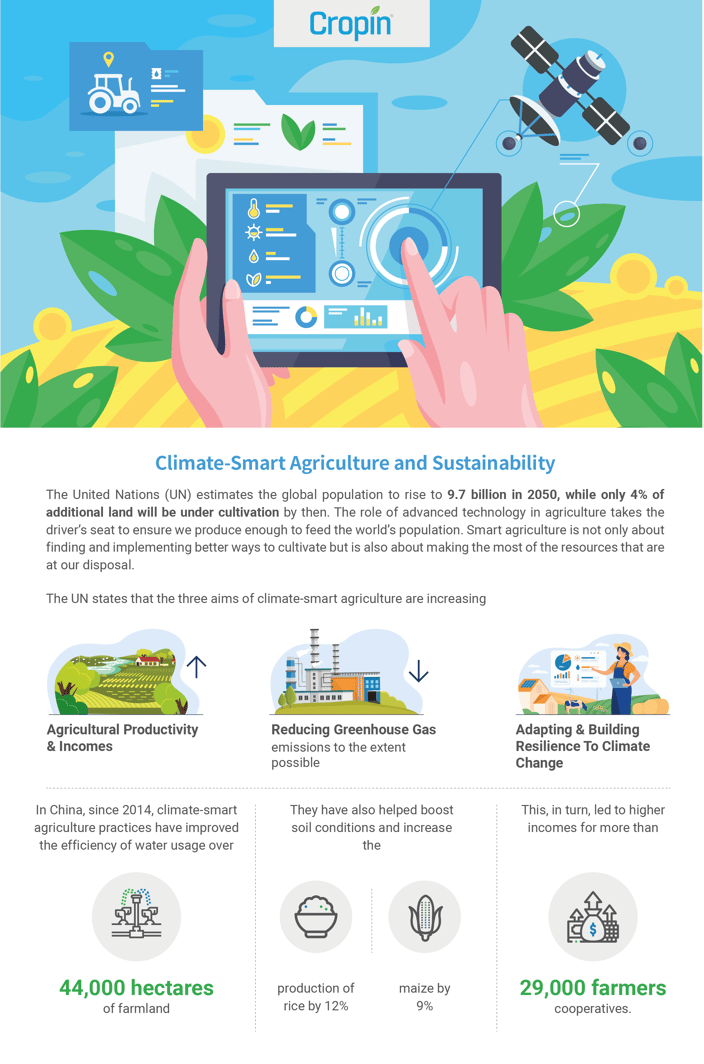Smart farming techniques are changing the way we cultivate and consume food. In farmlands across the world, food growers no longer look up at the sky for signs that show them the right time to sow, prepare, and cultivate the crops of the season. Rampant changes in temperature and weather predictability have made such traditional farming practices redundant.
Research reveals growth in global market size for smart agriculture from USD 9.58 billion in 2017 to USD 23.14 billion in 2022. While developed nations are at the forefront of the global smart farming market, recent years have witnessed the emergence of advanced technology in agriculture in developing markets such as India and Africa. Technology has helped farmers in these economies improve the quality of their produce through optimum seed selection, identifying the right time for planting and harvesting cycles, timely weather monitoring, and ongoing tracking of crop health throughout the cultivation cycle.
The Farmer’s Alexa
Technology has enabled today’s farmers to rely on a new weapon of choice – the smartphone. Boston Consulting Group study says that by 2020, about 315 million Indians living in rural areas will have access to the Internet, compared to 120 million at present. As digital connectivity spreads to rural areas, phones are a vital information tool for farmers that can equip them with data intelligence and services on ideal farming practices that can enhance farm productivity. For instance, Bihar Agriculture University in India has come up with a mobile app called Bihar Krishi App that helps farmers with crop management, weather-related information, expert advice on farmer queries, and even soil and water data. The app is one among many free applications available in a number of local languages providing invaluable insights about modern cultivation practices to farmers.
Farm management solutions like CropIn’s SmartFarm® are designed to empower food growers and farming businesses with reliable information at the right time and enable data-driven decision making when it comes to farming. Smart agriculture combines inputs from satellite imagery, weather, and ground data to allow complete digitisation of farms at a plot and regional level. This not only enables absolute visibility throughout the cultivation process but facilitates end-to-end traceability of the produce, too.
Climate-Smart Agriculture and Sustainability
The United Nations (UN) estimates the global population to rise to 9.7 billion in 2050, while only 4% of additional land will be under cultivation by then. The role of advanced technology in agriculture takes the driver’s seat to ensure we produce enough to feed the world’s population. Smart agriculture is not only about finding and implementing better ways to cultivate but is also about making the most of the resources that are at our disposal.
The UN states that the three aims of climate-smart agriculture are increasing agricultural productivity and incomes, reducing greenhouse gas (GHG) emissions to the extent possible, and adapting and building resilience to climate change.
We have seen the impact of climate-smart agriculture in farming over the last decade, with many more countries adopting these cultivation techniques. In China, since 2014, climate-smart agriculture practices have improved the efficiency of water usage over 44,000 hectares of farmland. They have also helped boost soil conditions and increase the production of rice by 12% and maize by 9%. This, in turn, led to higher incomes for more than 29,000 farmers’ cooperatives.
A Real-World Example of the Power of AI in Farming
One of the greatest blessings of advanced technology in agriculture is the ability to continually monitor crop health and detect any pests or diseases that could damage the crop. In the past, crops were subject to a number of environmental risks, pests being the biggest one among them. It was difficult to spot an infestation that could potentially ruin an entire crop and, even when detected, it would significantly impact the overall crop yield.
AI in farming comes as a godsend to farmers who can now get alerted about the slightest change in their crop with as little as a message on their phones. For instance, researchers recently developed an app that could detect diseases in the cassava plant, with almost 100% accuracy. The team used TensorFlow to build a library of 2,756 images of the cassava plant leaves in order to teach the AI to identify diseases in the plant. The team used transfer learning to train the system to recognise damages from common ailments seen in the cassava plant, and successfully differentiate a healthy plant from one that had an infestation of any sort.
This is just one example of how AI is impacting farming practices and rewriting the rules of agriculture the world over.

The Future of Food is Smart
AI and machine learning are changing how industries function, but it goes without saying that agriculture is the sector where they have the most widespread impact. Quite simply, every single individual on the planet needs food to survive, and the use of advanced technology in agriculture helps us unearth smarter ways of producing food for the coming generations. The data gathered through satellite imagery, ground sensors, and weather information stored and analysed through farm management software such as CropIn’s SmartFarm® and SmartRisk® give farmers the predictive insights they need for smarter and more sustainable cultivation. As a greater number of farmers adopt these technologies for farming, agriculture is moving away from being an unpredictable sector and helps us redefine the way we think about food production and cultivation.
Reach out to us to find out how CropIn uses AI and machine learning to help increase predictability and improve output for farmers and farming companies the world over.










